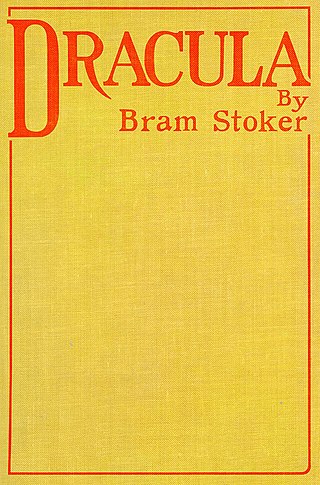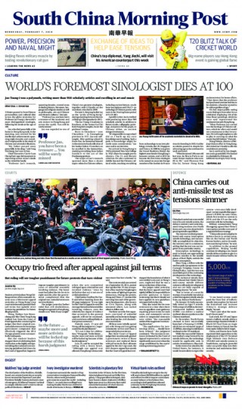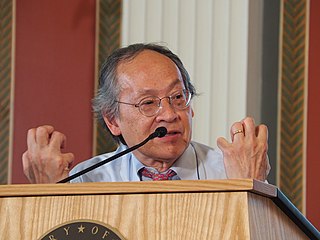
An autobiography, sometimes informally called an autobio, is a self-written biography of one's own life.

Dracula is a gothic horror novel by Bram Stoker, published on 26 May 1897. An epistolary novel, the narrative is related through letters, diary entries, and newspaper articles. It has no single protagonist and opens with solicitor Jonathan Harker taking a business trip to stay at the castle of a Transylvanian nobleman, Count Dracula. Harker escapes the castle after discovering that Dracula is a vampire, and the Count moves to England and plagues the seaside town of Whitby. A small group, led by Abraham Van Helsing, investigate, hunt and kill Dracula.

Proceedings of the National Academy of Sciences of the United States of America is a peer-reviewed multidisciplinary scientific journal. It is the official journal of the National Academy of Sciences, published since 1915, and publishes original research, scientific reviews, commentaries, and letters. According to Journal Citation Reports, the journal has a 2022 impact factor of 9.4. PNAS is the second most cited scientific journal, with more than 1.9 million cumulative citations from 2008 to 2018. In the past, PNAS has been described variously as "prestigious", "sedate", "renowned" and "high impact".
The Vancouver Sun, also known as the Sun, is a daily broadsheet newspaper based in Vancouver, British Columbia, Canada. The newspaper is currently published by the Pacific Newspaper Group, a division of Postmedia Network, and is the largest newspaper in western Canada by circulation. Since 2022, it is published five days a week from Tuesday to Saturday.

World Journal is a U.S. newspaper printed in Chinese. It is the most influential Chinese language newspaper in the United States and one of the largest Chinese language newspapers outside of Greater China, with a daily circulation of 350,000. The newspaper is headquartered in the Whitestone neighborhood of Queens in New York City.

The New Zealand Herald is a daily newspaper published in Auckland, New Zealand, owned by New Zealand Media and Entertainment, and considered a newspaper of record for New Zealand.
Robert Sampson Elegant was an American-British author and journalist. He spent many years in Asia as a journalist. The Asian settings of all but one of his novels reflect that experience. He covered both the Korean and the Vietnam Wars, as well as four or five lesser conflicts. One of his last novels, Cry Peace, is centered on the Korean War.

A letter to the editor (LTE) is a letter sent to a publication about an issue of concern to the reader. Usually, such letters are intended for publication. In many publications, letters to the editor may be sent either through conventional mail or electronic mail.

Nicholas Herbert Stern, Baron Stern of Brentford, is a British economist, banker, and academic. He is the IG Patel Professor of Economics and Government and Chair of the Grantham Research Institute on Climate Change and the Environment at the London School of Economics (LSE), and 2010 Professor of Collège de France. He was President of the British Academy from 2013 to 2017, and was elected Fellow of the Royal Society in 2014.

The Epoch Times is a far-right international multi-language newspaper and media company affiliated with the Falun Gong new religious movement. The newspaper, based in New York City, is part of the Epoch Media Group, which also operates New Tang Dynasty (NTD) Television. The Epoch Times has websites in 35 countries but is blocked in mainland China.

The South China Morning Post (SCMP), with its Sunday edition, the Sunday Morning Post, is a Hong Kong-based English-language newspaper owned by Alibaba Group. Founded in 1903 by Tse Tsan-tai and Alfred Cunningham, it has remained Hong Kong's newspaper of record since British colonial rule. Editor-in-chief Tammy Tam succeeded Wang Xiangwei in 2016. The SCMP prints paper editions in Hong Kong and operates an online news website that is blocked in mainland China.
Scholastic is the official student publication of the University of Notre Dame. Founded in 1867, it is the United States' oldest continuous college publication. Scholastic has been both Notre Dame's weekly student newspaper and now a monthly news magazine. Originally, its motto was Disce Quasi Semper Victurus, Vive Quasi Cras Moriturus.
Taiwan Journal is an English-language weekly newspaper published by the Government Information Office of the Republic of China (Taiwan). The newspaper, with both print and online editions, is published every Friday, 51 issues per year, with National Day and occasional special editions.
Con Coughlin is a British journalist and author, currently The Daily Telegraph defence editor.

The Kathmandu Post is a major daily newspaper published in Nepal. Founded in February 1993 by Shyam Goenka, it is one of the largest English-language newspapers in the country. The newspaper is published by Kantipur Publications, the publishers of Nepal's largest selling newspaper, the Nepali-language Kantipur. Post is a member of the Asia News Network, an alliance of nineteen Asian newspapers. The Kathmandu Post is Nepal's first privately owned English broadsheet daily, and is Nepal's largest selling English language newspaper, with a daily circulation of 95,000 copies.

A newspaper is a periodical publication containing written information about current events and is often typed in black ink with a white or gray background. Newspapers can cover a wide variety of fields such as politics, business, sports, art, and science. They often include materials such as opinion columns, weather forecasts, reviews of local services, obituaries, birth notices, crosswords, editorial cartoons, comic strips, and advice columns.

Arthur Sze is an American poet, translator, and professor. Since 1972, he has published ten collections of poetry. Sze's ninth collection Compass Rose (2014) was a finalist for the 2015 Pulitzer Prize for Poetry. Sze's tenth collection Sight Lines (2019) won the 2019 National Book Award for Poetry.

Conspiracy Encyclopedia: The Encyclopedia of Conspiracy Theories is a non-fiction reference book about conspiracy theories, with an introduction by editor Thom Burnett. It was published in 2005 by Chamberlain Bros., and in 2006 by Collins & Brown. Contributors to the work include Thom Burnett, Nigel Cawthorne, Richard Emerson, Mick Farren, Alex Games, John Gill, Sandy Gort, Rod Green, Emma Hooley, Esther Selsdon, and Kenn Thomas. The encyclopedia discusses 365 conspiracy theories, most of which are political.

The Critical Review, also known as Xueheng in Chinese, was a major Chinese-language journal that supports traditional Chinese culture during the New Culture Movement. Generally regarded as cultural conservatism, the scholars who published on the journal, including Wu Mi, Mei Guangdi, Hu Xiansu, Liu Yizheng and Guo Binhe, were termed the Critical Review Group or the Xueheng School, based at National Southeastern University.
The Xueheng School, also known as the Hsueh-Heng School or the Critical Review group, was a major school of thought against the New Culture Movement in China. Active in the 1920s and 1930s, the school founded and published the academic journal of The Critical Review, also known by Xueheng in Chinese, and was named after the journal. The school was impacted by the New Humanism of Irving Babbitt, amid the crisis of modernity debates after the First World War. Thus, the school went against full westernization of China, but rather promote careful, selective absorption of western culture.













